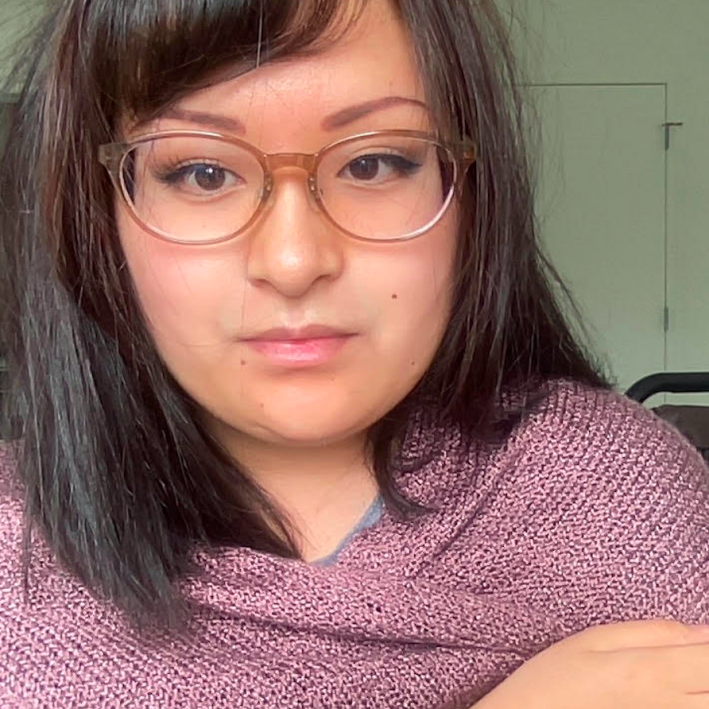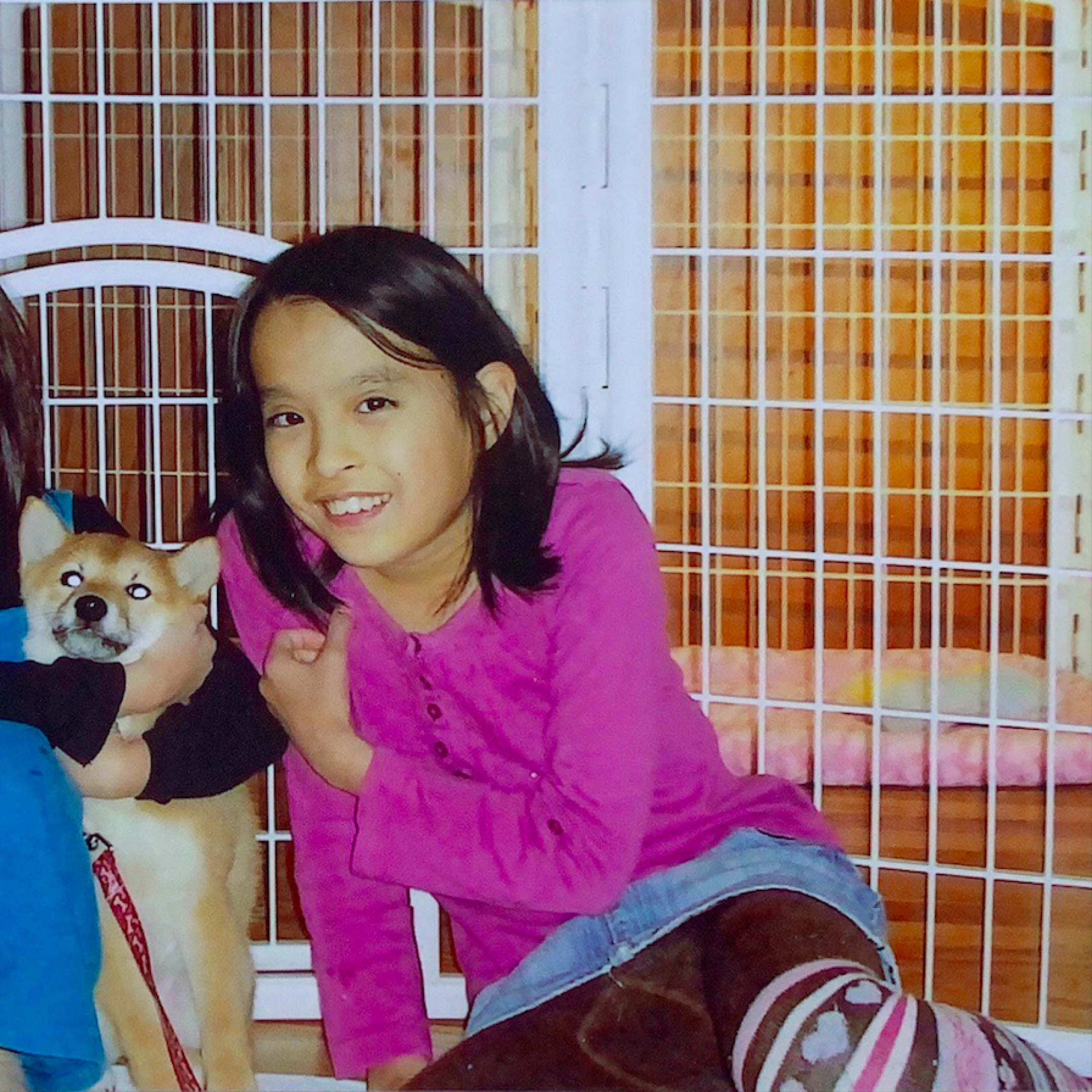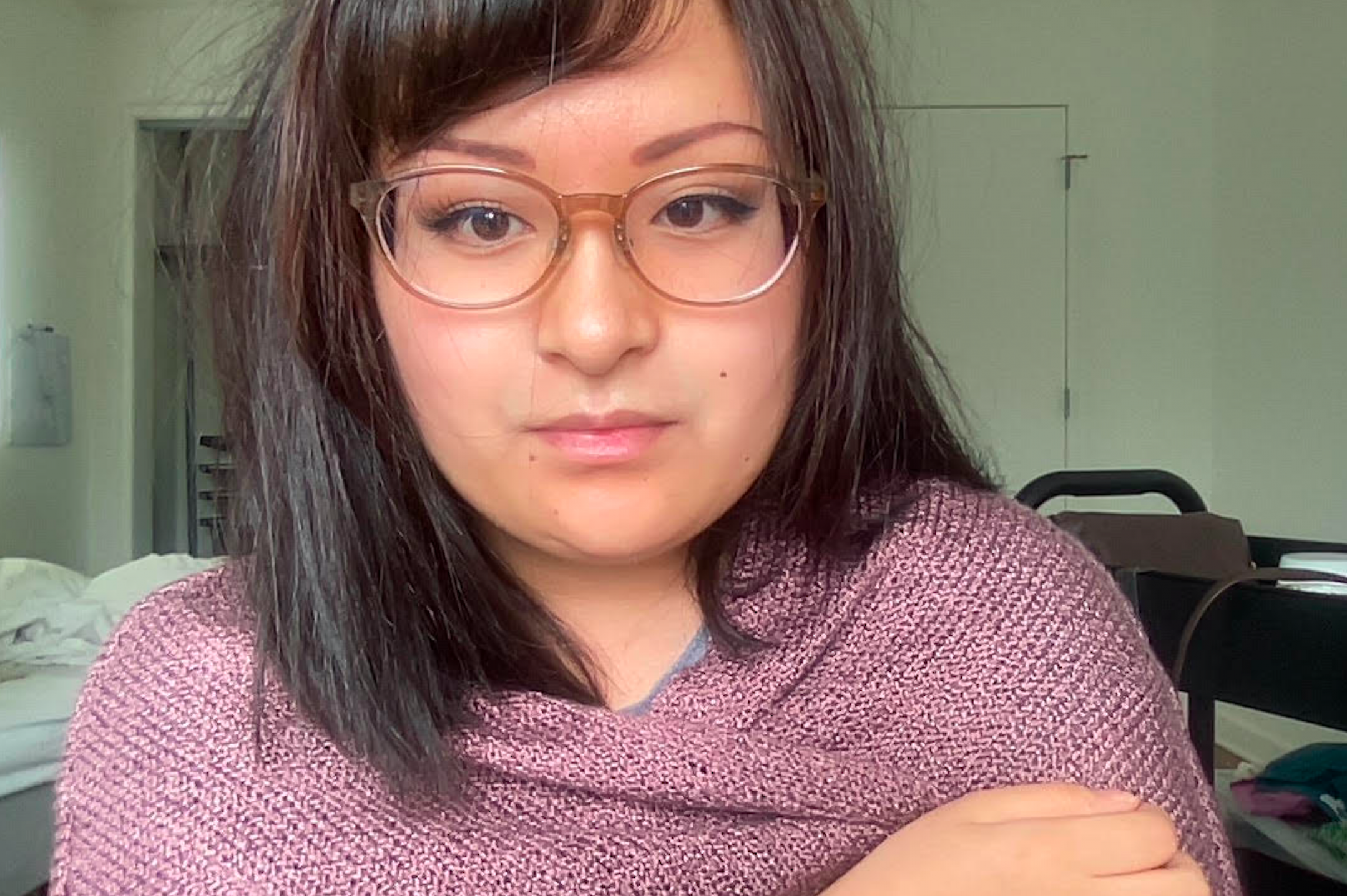Surprising Things ADHD and Autism Have in Common
Here's what it's like to live with both.
Written by Asaka Mae

01 Asaka has been diagnosed with both ADHD and Autism.
02 While the two disorders may not seem related, Asaka explains their similar characteristics, and clarifies common misconceptions.
03 As an advocate for both conditions, she stresses the importance of building representative communities.
When you hear the word “ADHD,” autism is probably the last thing that comes to mind. You may have heard of ADHD being mistaken for bipolar disorder, or anxiety being exacerbated by ADHD. But autism? How on earth does that have to do with ADHD?
You won't be the first person to be flabbergasted. After all, the cultural connotations attached to the two diagnoses are like apples and oranges. You can’t bring up ADHD without having someone chime in: “Everyone’s a little ADHD” or “ADHD isn’t real". The mention of autism, on the other hand, seems to elicit pitying gasps and patronizing awws. Stigma doesn't always come in the same flavor.
Believe it or not, ADHD and autism have a bunch of things in common. I know, because I’ve been diagnosed with both.
ADHD and autism both fall in the same category: neurodevelopmental disorders.
“The term ‘neurodevelopmental disorder’ refers to various conditions in which differences in brain development can lead to challenges in areas such as learning, socialization, motor development, and executive functioning,” explains Dr. Alex Klein, Psy.D., a Bay Area therapist and a Healthline advisor who specializes in neurodevelopmental disorders.
ADHD and autism — alongside other neurodevelopmental disorders, from dyslexia to Down syndrome — stem from variations in how the brain processes information. ADHD is diagnosed when a person exhibits difficulty controlling attention, and often, hyperactivity; autism is diagnosed when a person demonstrates marked differences in communication and other idiosyncratic behavior. While the vast majority of people with ADHD aren’t on the autism spectrum, approximately one-third of autistic people have ADHD.
People don’t develop autism or ADHD — they’re born with it. In 2019, researchers in Denmark discovered a genetic mutation linked to both autism and ADHD. This isn’t surprising, as both conditions can run in families. “It's not uncommon for a parent to come in to have their child assessed only to realize they also share the same or a similar condition,” says Dr. Klein.
What’s more, ADHD and autism have overlapping features. It is common, for example, for both people with ADHD and people on the autism spectrum to experience heightened emotions, laser-like focus (known as hyperfocus) on activities that interest them, difficulty switching between tasks, and sensory differences.
“Both people with ADHD and autism tend to be outside the box thinkers,” adds Amanda Morin, a former special education teacher and Associate Director of Thought Leadership & Expertise for Understood.
“My older son [who has ADHD], for example, couldn't master multi-digit multiplication the way it was taught in school, but always got the right answer. When we finally asked him to explain how he got to the answer, it was amazing to see how his brain broke the information down and reassembled it. It wasn't wrong — it was just different.”
The similarities between ADHD and autism has long baffled the doctors. ADHD and autism couldn’t be diagnosed together until 2013. I was eight years old in 2009, when my parents decided to get me checked out. I struggled to follow directions, I was highly anxious, and I wasn't reaching the developmental milestones expected of kids my age. Two specialists diagnosed me with autism, and one diagnosed me with ADHD.

While my parents and my therapists read me books and showed me videos about autism, no one explained what ADHD was, and how it pertained to me. My mom would often comment that I had “ADHD-like tendencies,” but I didn’t look into it any further until a friend in high school told me that she had ADHD. I quickly realized that the symptoms of ADHD fit me to a T, but it wasn’t until my senior year that my ADHD diagnosis was documented on paper.
Even now, I feel that my ADHD doesn’t get enough attention (pun unintended). People tend to remember that I’m autistic, but forget that I have ADHD. But my ADHD is kind of a big deal, too. It’s part of the package deal.
My ADHD comes hand-in-hand with my autism.
The truth is, my ADHD impacts me just as much as, if not more than, my autism. My brain works overtime just to get around the usual, everyday things, although medication alleviates the overwhelming lethargy that accompanies.
My ADHD contributes to my communication difficulties, too. My impulsivity means that I tend to put my foot in my mouth; my slow recall can turn small talk into a brain-racking quandary. Oddly enough, I seldom experience difficulty understanding social norms and social cues, like many other autistic people do. And yet you might not realize that when you meet me, because my ADHD affects other components of communication.
That being said, the similarity between autism and ADHD is more than just skin deep. Sometimes, I can tell where my ADHD ends and where my autism begins; other times, the line is impossibly blurry.
The overlapping characteristics of autism and ADHD have been some of my greatest challenges. In particular, I struggle with transitions. It takes herculean effort for me to get started on a task, and if it’s a multi-step activity, like cooking a meal or cleaning my room, I may not even know where to start. I also tend to freeze up when I attempt to engage in activities that involve bouncing back and forth, like taking notes, or assembling tools and putting them back when I’m done using them.
Of course, ADHD and autism each have their own defining characteristics, but even some of those feel closely related. Case in point: I’m a non-linear thinker, with little to no inner speech. My inability to clearly “see” or “hear” my own thoughts presents as two sides of the same coin: while I experience communication difficulties typical of autism, I also experience chronic disorganization at the heart of ADHD.
Since my ADHD and my autism are intertwined, I often refer to both conditions as a singular “my disability.” Even though I know that ADHD and autism have separate clinical definitions, their effects on my personal life are inextricable.
As a person with both ADHD and autism, I fight for visibility, representation, and belonging.
Finding community is important, especially when you have a disability. A popular motto in the disability community is nothing about us without us. Another way of saying this is that disabled people should lead the conversation about disability. Those with firsthand experience can offer perspectives that clinical research alone cannot capture, and serve as a role model for others.
Colleen Torrey, who has ADHD and learning disabilities, said that speaking to other people who share her diagnoses was “a form of self-discovery”. “I’m still learning new tips and tricks for myself daily,” she said. Now, she’s giving back by mentoring other women with similar challenges. Torrey, who posts on Instagram as @beeyourselfwithcolleen, is slated to get a counseling license in 2023. “Find people like you — it can feel less lonely.”
I, too, know the power of community. When I was a freshman in high school I started a student organization dedicated to disability awareness, and I still play an active role within the disability community in my college, where I’m pursuing a degree in journalism. Through participating in a greater conversation on disability, I’ve met like-minded friends and empathetic allies. It’s great to feel wanted.

It’s not always easy. In many ways, I’ve felt like a bit of an outcast for having more than one diagnosis. I struggle, for example, with the discourse surrounding ADHD and autism — how autism is talked about versus how ADHD is talked about, what all that means for someone existing at the intersection. Turns out, the sharp contrast between the two conditions doesn’t only exist in the superficial, stereotype-laden pop culture that I grew up on; it also exists within advocacy circles dedicated to fighting stigma.
Entering the online ADHD spaces, one can’t help but notice the widespread sentiment that ADHD is a bad thing and a problem to be dealt with. Online forums are full of people lamenting the havoc ADHD wrecks on their careers, relationships, and finances. Pleas for awareness often frame ADHD as a silent public health crisis.
By contrast, most people in the online autistic community will be quick to tell you that autism is not an illness or a burden. For years, autistic activists have cautioned against awareness campaigns that equate autism to suffering. Many autistic adults view autism as a facet of their identity, and fear that pathologizing rhetoric will perpetuate the mistreatment of autistic people. It’s important to note that most of these people readily acknowledge real hardships that come with autism, and stress the need for accommodations. At the same time, they believe that autism is a unique — not faulty — way of seeing the world, one that can be nurtured with environmental modifications and varying levels of assistance.
I’ve thought long and hard about these clashing points of view, and where I fit in, as someone who experiences ADHD and autism, hand-in-hand. How should I talk about my disability? Where do I draw the line? Do I have to “pick a side”? I get nervous. I know that my experiences may radically differ from another person’s experiences. I worry that I’ll alienate or even offend some people if I share my honest, unfiltered thoughts and feelings. I am still learning to sit with that discomfort rather than allowing it to deter me from speaking up.
Nonetheless, I think I can speak for everyone with autism, ADHD, and any kind of medical condition, when I say that we want to be believed, rather than judged and shamed. Regardless of how each of us choose to frame our differences, strengths, and limitations, they’re real, and they exist alongside our intrinsic worth.
About the author
Asaka Mae is a content creator and a disability advocate. She is currently pursuing a BA in Journalism and Professional Writing at The College of New Jersey.
Support our work
We’re on a mission to change how the world perceives mental health.



















